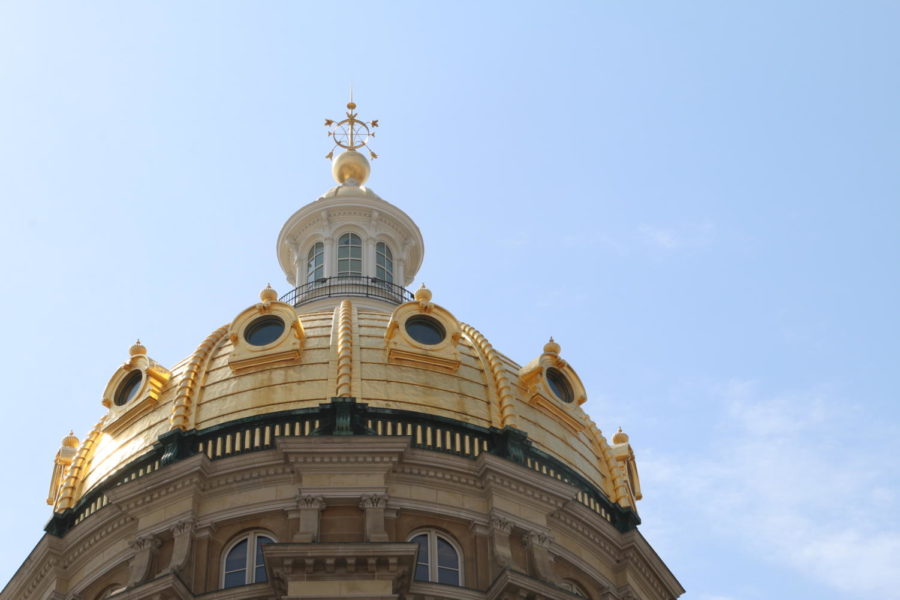Divisive tax bill goes into effect for first year
Amber Gustafson is running for Iowa Senate District 19 which includes Ankeny, Saylorville and Alleman. The Iowa Senate meets in the Iowa State Capitol Building in Des Moines.
April 14, 2019
At the close of last year’s legislative session, Gov. Kim Reynolds signed into law Senate File 2417, a tax reform which will affect all Iowans this year.
Its goal was to lower personal income tax rates and provide $2.16 billion in cuts to Iowa taxes over the next six years. The legislation additionally collapses the previous nine tax brackets to four.
This is the first year Iowans and businesses are seeing the impact of the governor’s reforms to Section 179, as well as sales taxes.
Section 179 is what allows taxpayers to deduct the cost of personal properties on their income taxes. Reynolds’ changes in Section 179 will align the state’s levels with the federal levels.
“On a federal level, Section 179 allows businesses to immediately expense personal property, meaning machinery and equipment, placed in service that year, instead of depreciating it over several years with [Modified Accelerated Cost Recovery System],” said Anya Gedlinske, a graduate student in accounting.
However, Gedlinske noted the maximum on Section 179.
“There is a $1 million limit on this deduction, and this limit is reduced by the amount that property placed in service exceeds $2.5 million,” Gedlinske said. “This may provide smaller businesses with an incentive to purchase more equipment since they will receive more of a tax deduction for it.”
Gedlinske said Section 179 changes will benefit smaller Iowa businesses and not “big corporations” by promoting growth and competition and because of the maximum on Section 179 deductions, saying if a business owner were to place more than $3.5 million worth of property into service, they could not take advantage the Section 179 deduction.
”This means this deduction is typically only available to small or medium-sized businesses, as larger businesses will exceed the property limitation,” Gedlinske said.
Additionally, by adding new taxes on digital goods, ride sharing and subscription services, the tax overhaul is expected to generate new revenue for the state.
“These demands, they are basically inelastic in the sense that subscribers to Netflix are people who are going to be using no matter,” said Rajesh Singh, professor of economics. “Say like in a campus town like ours or Iowa City, these are not folks who are going to be changing their behaviors because of one increase in tax.”
Singh discussed how these services are staples of some people’s lives, saying she believes the potential change in price will not drive away customers.
“Netflix has so much content and the price they offer you is cheap so what is it if I’m paying ten cents extra,” Singh said. “The same thing about Uber. I’m not going to kind of think twice about calling a cab, running to the bar or if I have to go home”
However, the bill has also received criticism for how much it will decrease state revenue.
“The bill would result in a loss of income tax revenue to the state of more than $400 million a year — revenue the state needs for these programs,” said Sen. Rob Hogg, D-Cedar Rapids when initially debating the bill. “This tax bill will make the problem of budget cuts even worse.”
An analysis by the Iowa Legislative Service Agency lays out all the changes to Iowa’s tax code.







